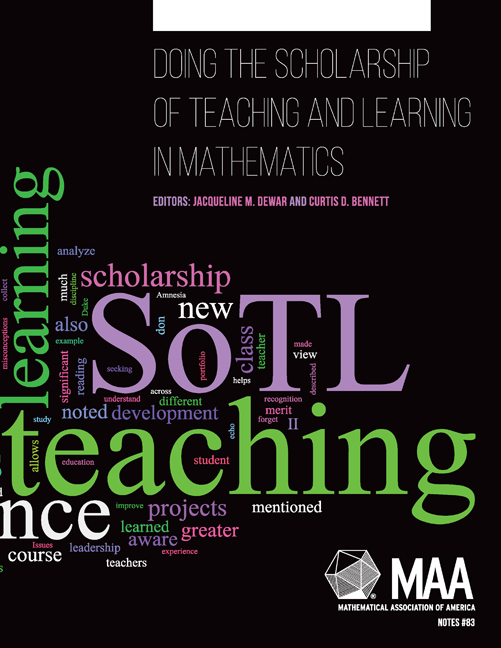Foreword
Summary
In our progression as teachers of mathematics, first comes good teaching. This includes learning how to build rapport with one's students and to motivate them by finding what is exciting and sharing it. It entails seeking ways to challenge, encourage, and support them. That is a powerful start, but, eventually, a good teacher is not content with attentive faces and good teaching evaluations. Eventually, a really good teacher realizes that many of his or her students are having difficulty with fundamental concepts that had been so clearly explained and seemingly firmly fixed in their minds but then somehow were lost.
At the next stage, we become reflective teachers. We try to understand what went wrong, how we might reach more of our students more effectively. We seek advice from more experienced colleagues, learn about other approaches to the teaching of a given topic, and experiment within our own classrooms. Reflective teachers are constantly learning about teaching, adjusting their courses, seeking to do even better at challenging, encouraging, and supporting their students.
There is a third stage: scholarly teaching. A reflective teacher might discover an approach to a lesson or a course that really works. They want to share it. A scholarly teacher seeks to back this up with evidence that it is working and has the potential to work for others. More than that, a scholarly teacher wants to understand why it works. No one else is going to pick up your insights and implement them precisely the way you did. A scholarly teacher tries to identify the critical core of what makes this approach work, so that those who would adopt it know what is essential and what can be adapted.
There is another motivation for scholarly teaching. It comes when nothing seems to work. Scholarly teaching can arise from the decision to confront pedagogical or curricular difficulties as an intellectual problem worthy of full attack. This involves studying what actually happens in the classroom and exploring why students are having trouble.
- Type
- Chapter
- Information
- Doing the Scholarship of Teaching and Learning in Mathematics , pp. xiii - xivPublisher: Mathematical Association of AmericaPrint publication year: 2014

